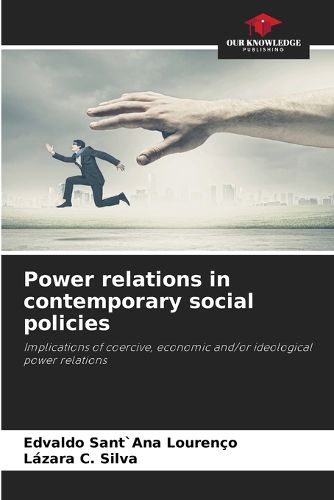Readings Newsletter
Become a Readings Member to make your shopping experience even easier.
Sign in or sign up for free!
You’re not far away from qualifying for FREE standard shipping within Australia
You’ve qualified for FREE standard shipping within Australia
The cart is loading…






This work presents the biopolitical relations established between Civil Society Organisations (CSOs) and the state in the promotion of social emancipation. The research seeks to understand the epistemological bases that support the partnerships established by the state with CSOs from the perspective of informal social inclusion, as well as the social, economic and political implications of this power relationship. Based on the study, it is understood that power is a category that has always been present in the history of civilisation, whether in the struggles and clashes established, in everyday relationships, in the simplest action of a person demanding a guarantee of their rights or in the agendas of political discussions that define and determine public policies. From this perspective, we understand that the state and CSOs (Civil Society Organisations) have been building new paths, albeit slowly, for the transformation of contemporary social policies. This highlights the power relations that can be found in discourses, counter-discourses and in human and social training actions, with the aim of promoting human and social empowerment in order to build a fairer and more empowered society.
$9.00 standard shipping within Australia
FREE standard shipping within Australia for orders over $100.00
Express & International shipping calculated at checkout
This work presents the biopolitical relations established between Civil Society Organisations (CSOs) and the state in the promotion of social emancipation. The research seeks to understand the epistemological bases that support the partnerships established by the state with CSOs from the perspective of informal social inclusion, as well as the social, economic and political implications of this power relationship. Based on the study, it is understood that power is a category that has always been present in the history of civilisation, whether in the struggles and clashes established, in everyday relationships, in the simplest action of a person demanding a guarantee of their rights or in the agendas of political discussions that define and determine public policies. From this perspective, we understand that the state and CSOs (Civil Society Organisations) have been building new paths, albeit slowly, for the transformation of contemporary social policies. This highlights the power relations that can be found in discourses, counter-discourses and in human and social training actions, with the aim of promoting human and social empowerment in order to build a fairer and more empowered society.